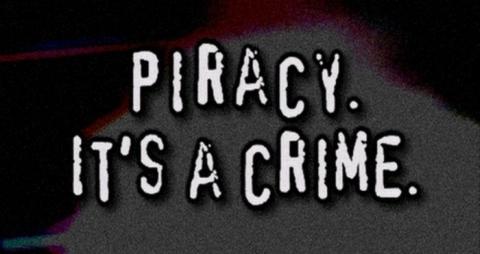Kim Dotcom's new website, Mega, is set to spur on new anti-copyright measures. But is trying to stamp out piracy through litigation and legislation ultimately futile?
In the mad rush to appease movie and music companies, governments around the world have trodden on centuries of legal precedent and forced internet service providers to become unwilling proxies in what is a corporate law matter between copyright holders and pirates.
And now, with the release of Kim Dotcom’s new website, Mega, the copyright witch-hunt is set to continue.
Dotcom claims that his new website – a content sharing site that uses encryption to hide what is perhaps being illegally shared – won’t be taken down by lawyers. But given what’s already being done to prevent piracy, Dotcom eventually may end up eating his words.
Overseas examples
The New Zealand Copyright Tribunal will hold its first hearings next month relating to music piracy through a file-sharing service.
New Zealand enacted changes to the local copyright act in 2011 and thereby put in motion an anti piracy regime that cannot be justified. Under the anti-piracy regime people identified downloading copyright music files are given a series of warnings before the Recording Industry Association of New Zealand (RIANZ), the body that represents music companies in New Zealand, can take action. After a third warning has been issued, RIANZ can apply to the Copyright Tribunal for a determination and financial penalty up to NZ$15,000.
Fairfax New Zealand reported on 11 January 2013 that a Wellington student is being pursued by RIANZ for allegedly downloading five songs valued at NZ$11.75 and is seeking a financial penalty of NZ$2700. The Wellington student has stated that the internet account was used without her knowledge.
In the US, Verizon Wireless is about to implement a “six-strike” anti-piracy regime. A copy of the Verizon Wireless policy was obtained by TorrentFreak. The Verizon Wireless regime has been implemented at a time when other internet service providers including AT&T and Time Warner Cable are also in the process of finalising anti-piracy regimes.
Australia's efforts to form its own regime faltered when iiNet pulled out of an agreement that would potentially turn Australia’s internet service providers into copyright watchdogs. But regardless of that outcome, you can bet that the issue will be revisited.
The pitfalls of anti-piracy efforts
There are two key problems with anti-piracy regimes. Firstly, they require internet service providers (ISP’s) to act as enforcers for media organisations. This is slippery slope with dubious benefits. Such policies will ultimately see ISPs pass the additional costs of copyright regulation onto the everyday consumer. Should everyone have to pay for a burden that only affects one sector?
Secondly, all anti-piracy efforts seem to be easily usurped by new technologies. Technology simply moves faster than the law.
Whether Kim Dotcom’s mega.co.nz will reach the heights of former piracy driving site megaupload.com - which had about 50 million visitors per day - is yet to be seen; but one thing is certain: Dotcom’s new internet service will send authorities back to the drawing board in an attempt to create an anti-piracy regime that will put mega.co.nz out of business.
However, in the process, authorities may have a negative impact on other internet file storage and sharing services such as DropBox, Apple iDrive, Google Drive and Microsoft SkyDrive. Kim Dotcom has correctly identified the futility of laying blame for internet piracy at the feet of companies that are providing a valid service albeit one that some people misuse.
Serious file sharing pirates have already adopted technologies that will defeat the anti-piracy regimes being rolled out needlessly around the world.
Will sense prevail and government’s (including Australia) step back from the brink or will they charge headlong in a never ending battle that they cannot win?
Mark Gregory is a Senior Lecturer in Electrical and Computer Engineering at RMIT University





